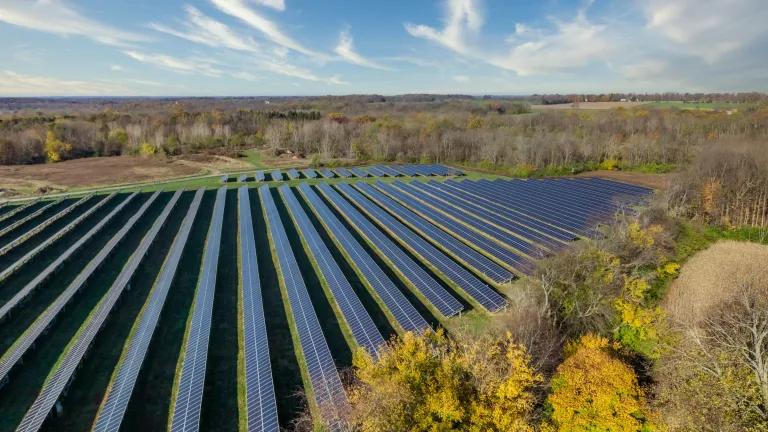Poorly developed biofuels pose severe environmental risks. Procurement officials and risk managers should use only the most stringent and protective certification standards available. Yet assessing how different certification systems rank across the product life cycle is a complex undertaking. That is why NRDC evaluated the performances of several of the major sustainability systems. The report looks at systems developed by the Roundtable on Sustainable Biomaterials (RSB), the Council on Sustainable Biomass Production (CSBP), the International Sustainability & Carbon Certification (ISCC), the Roundtable on Sustainable Palm Oil (RSPO), the Roundtable on Responsible Soy (RTRS), Bonsucro, and the Forest Stewardship Council (FSC).
NRDC examined these certification systems across major categories (key attributes, economic performance, environmental performance, and social performance) and then the numerous subcategories within each. Each certification system had strengths and weaknesses but the Roundtable on Sustainable Biomaterials was clearly the most protective.
Background
Large fuel purchasers are increasingly turning to biofuels to improve their environmental performance. These efforts are well-intentioned but warrant caution nonetheless. While biofuels certainly have environmental benefits, they can also cause severe damage if produced unsustainably because biofuel feedstocks are inextricably linked to land, water, and wildlife. Careless development can impact all of these resources and tarnish purchasers' admirable efforts. Unfortunately, many fuel purchasers do not have the time, resources, or expertise to analyze sustainability through each stage of the product life cycle. Biofuel sustainability certification systems have emerged to serve this purpose.
The right certification systems provide third-party verification that biofuel feedstocks are grown and converted into fuel in a sustainable manner. Thus, a credible system can reduce the complexity and effort of ensuring that biofuel purchases deliver environmental benefits and avoid controversy. Yet, not all certification systems are equal -- some are more protective of the environment than others.
Why Certification Systems?
Biofuel sustainability analysis is intricate and complex. Sustainability certification systems provide independent verification that stringent environmental measures are being observed throughout production. These systems have several benefits. First, existing laws are helpful but not always sufficiently stringent. Second, some laws provide important guidance but do not audit for sustainability at the facility level. Fuel purchasers may still find themselves affiliated with unsustainable fuels, despite statutory protection.
Sustainability certification systems verify environmental protections at the detailed field level. These systems thereby allow buyers to publicly demonstrate their environmental commitment. Finally, certification systems allow customers to identify and reward biofuel producers that take clear measures to protect the environment. In this way, biofuel purchasers encourage behaviors that are critical to developing a biofuel industry that is environmentally viable at scale.
What Do Certifications Systems Do?
Biofuel sustainability certification systems measure and verify environmental performance of fuels throughout all major stages of the product life cycle, including feedstock production, fuel production, and end use. Within each stage, the system should look at a range of criteria that influence environmental sustainability including impacts on water, soil, biodiversity, air, land use, and waste. These criteria should be subdivided into different indicators to measure sustainability at the project level. Within the water criterion, for instance, a system should evaluate indicators like water quantity and quality. Finally, there should be a clear means of measuring whether a project performs sustainably in relation to each indicator. This is true not only for environmental concerns but also for social and economic issues, such as human rights, food security, and workforce safety. Different systems may categorize "criteria" and "indicators" somewhat differently, but the point is the same. A good certification system provides an organized and objective way to track sustainability down to the field level across a range of recognized issues.
Biofuel projects that apply for certification must undergo third-party site audits to certify that they are performing well across all criteria and indicators. Facilities and feedstock operations that pass rigorous inspection are then certified as sustainable. Purchasers can simply look for certified fuels rather than performing these tasks themselves.




